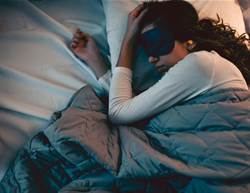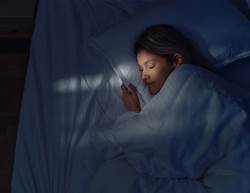If it suddenly feels like you’re dozing off more than you’re awake, you might be sleeping too much—also known as oversleeping or excessive daytime sleepiness (EDS). Research defines the condition as regularly sleeping more than nine hours a day. That shift in energy can feel jarring and leave you questioning your physical and mental health—which sleep experts say is completely valid.
“Generally, people do not ‘suddenly’ start sleeping too much,” explains integrative sleep medicine specialist Ed O’Malley. “This process takes time to build up a deficit, whether through reduced sleep quantity or quality.” In other words, while your sudden need for extra naps may feel abrupt, it’s often a result of patterns that have been building over time.
Below, O’Malley and another sleep expert share possible reasons why you might be sleeping more than usual—or struggling to get out of bed at all.
1. Alcohol and drug use
It’s well known that alcohol interferes with healthy sleep. “Excessive alcohol use—or even regular social drinking—can disturb sleep and reduce its restorative value and quality,” says O’Malley. Drugs associated with substance use disorders also affect sleep cycles and quality, according to research.
2. Poor sleep hygiene or lack of sleep
Even small disruptions to your regular bedtime routine—which should average between seven to nine hours per night—can trigger EDS. “Just half an hour less sleep each weeknight can lead to what we call weekend lag,” explains O’Malley. That’s when you sleep in on the weekend to make up for lost rest during the week.
Your schedule could also be at risk if you work night shifts or juggle multiple jobs, adds neurologist and sleep specialist Dr W Chris Winter.
3. Dysfunctional sleep
You might be getting eight or nine hours in bed each night, but still find yourself struggling to stay awake during the day. That could point to poor sleep quality. You may not be winding down properly—think too much screen time or a bedroom that’s not set up for rest—or your sleep could be disrupted by an underlying health condition, substance use or even a snoring partner, says Dr Winter.
4. Overtraining
Yes, it’s possible to exercise too much—especially without giving your body time to recover. “Overtraining can interfere with the body’s restorative processes, increasing the need for sleep,” explains O’Malley. If you’re feeling more run down than energised, your training load could be the culprit.
5. Physical health conditions
The two most common health conditions linked to excessive sleepiness are obstructive sleep apnoea and narcolepsy, says O’Malley. “Other conditions affecting the cardiovascular system, metabolism or hormone regulation can also increase fatigue and drive the need for more sleep,” he adds.
“Restless legs syndrome and periodic limb movement disorder are other common causes of disrupted sleep,” adds Dr Winter.
6. Medication
Some medications can directly cause excessive sleepiness—or interfere with your natural sleep cycle, which then leads to EDS. According to Dr Winter and O’Malley, the following medication types may be involved:
- Antihistamines
- Benzodiazepines
- Hypnotics, antipsychotics and barbiturates
- Antidepressants
- Blood pressure medications
- Beta-blockers
- Chemotherapy agents
- Muscle relaxants
- Opioids
- Anti-seizure medications
This isn’t an exhaustive list and not every drug within these categories will affect everyone the same way. If you suspect your medication is impacting your sleep, speak with your GP or pharmacist before making any changes.
7. Mental health conditions
Mental health concerns like major depression, bipolar disorder, post-traumatic stress disorder (PTSD), schizophrenia, dementia and generalised anxiety disorder can all contribute to chronic fatigue, leading to an increased need for sleep, says O’Malley.
What happens if you sleep too much?
“Decades of data show that excessive sleep can have a negative impact on health,” says O’Malley. “Like sleep deprivation, too much sleep can also be a red flag.” The most important step, he adds, is to rule out any underlying medical or sleep-related causes.
Dr Winter notes that excessive daytime sleepiness (EDS) becomes a more serious concern when it interferes with your work, relationships or ability to function safely—especially when it affects your ability to drive. In that case, it becomes “an immediate issue,” he says.
Treatment for sleeping too much
If getting more rest doesn’t leave you feeling refreshed, it might be time to investigate further. O’Malley suggests seeking help if you find yourself unable to get through the day without a nap, even when your night-time sleep seems adequate. “As we age, it’s true that factors like chronic pain, medication use or health issues can affect how well we sleep,” he says. “But our actual sleep needs don’t change much between adulthood and older age. If your sleep needs suddenly increase or you’re struggling to stay awake during the day, it’s worth getting evaluated.”
In some cases, improving your sleep hygiene may be enough to make a noticeable difference. O’Malley recommends:
- Waking up at the same time each day, including weekends
- Getting morning sunlight to support your body’s natural rhythms
- Reducing screen time and switching to warm lighting as evening approaches
Small changes can have a big impact—especially when they help reset your internal clock and restore your energy levels over time.










